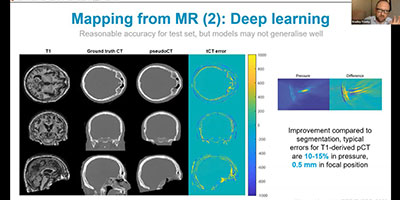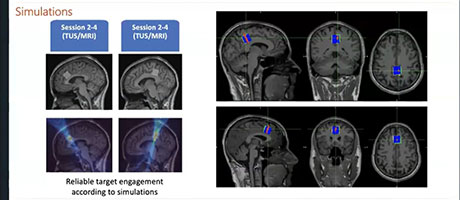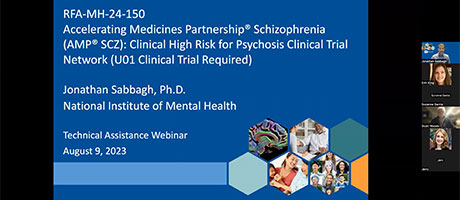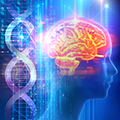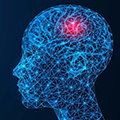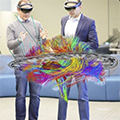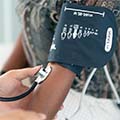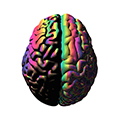News and Multimedia Featuring DTR
-
 Dr. Sarah Hollingsworth Lisanby to Depart NIMH• Institute Update
Dr. Sarah Hollingsworth Lisanby to Depart NIMH• Institute UpdateSarah Hollingsworth “Holly” Lisanby, M.D., Director of the Division of Translational Research, will depart NIMH this spring to join Arizona State University.
-
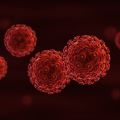 Researchers Investigate Potential Treatment for Eliminating HIV from the Brain• Research Highlight
Researchers Investigate Potential Treatment for Eliminating HIV from the Brain• Research HighlightIn a recent NIMH-funded study, researchers explored a potential new way of clearing HIV from the brain by testing a drug that targets a type of immune cell known as macrophages.
-
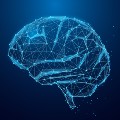 Brain Connectivity Linked With Cognition in People With Early Psychosis• Research Highlight
Brain Connectivity Linked With Cognition in People With Early Psychosis• Research HighlightAn NIMH-funded study identified consistent links between brain connectivity and cognitive function in people with early stage psychosis and people at high risk who later developed psychosis.
-
 Digital Autism Screening Tool Could Enhance Early Identification• Research Highlight
Digital Autism Screening Tool Could Enhance Early Identification• Research HighlightA tablet-based screening tool that analyzes children’s behavior in response to specific video clips shows promise for enhancing early autism screening, according to a study supported by NIMH.
-
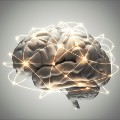 Noninvasively Stimulating Deep Brain Areas to Treat Depression Symptoms• Research Highlight
Noninvasively Stimulating Deep Brain Areas to Treat Depression Symptoms• Research HighlightIn a new neuroimaging study funded by the National Institute of Mental Health, researchers used repetitive transcranial magnetic stimulation to target regions deep in the brain to help reduce depression symptoms.
-
 Characterizing Childhood Irritability Across Ages and Stages• Research Highlight
Characterizing Childhood Irritability Across Ages and Stages• Research HighlightNIMH-supported research captures expressions of irritability across developmental stages via a clinically relevant measurement tool: the MAPS Temper Loss Scale.
-
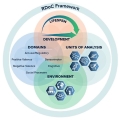 Revolutionizing the Study of Mental Disorders• Feature Story
Revolutionizing the Study of Mental Disorders• Feature StoryThe Research Domain Criteria Initiative (RDoC) represented a new way to conceptualize the study of mental illnesses. In celebration of NIMH's 75th Anniversary, we reflect on the beginning and progress of this initiative.
-
 Study Reveals Potential Neural Marker for Social Impairment in Psychotic Disorders• Research Highlight
Study Reveals Potential Neural Marker for Social Impairment in Psychotic Disorders• Research HighlightResearch funded by NIMH found a link between a low level of social interest among people with psychotic disorders and brain regions in the social motivation system.
-
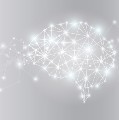 Using Games to Explore the Mind• Institute Update
Using Games to Explore the Mind• Institute UpdateThe National Institute of Mental Health (NIMH) and the non-profit organization The Many Brains Project partnered with the National Institutes of Health (NIH) All of Us Research Program to adapt a series of new game-like tasks that are now part of the All of Us Research Program’s participant experience.
-
 Combined, High Maternal Stress and Prenatal COVID-19 Infection May Affect Attention Span in Infants• Media Advisory
Combined, High Maternal Stress and Prenatal COVID-19 Infection May Affect Attention Span in Infants• Media AdvisoryPrenatal COVID-19 infection increased the risk for impaired attention and delayed socioemotional and cognitive functioning among infants of mothers who experienced high psychosocial stress during their pregnancy.
Load More

